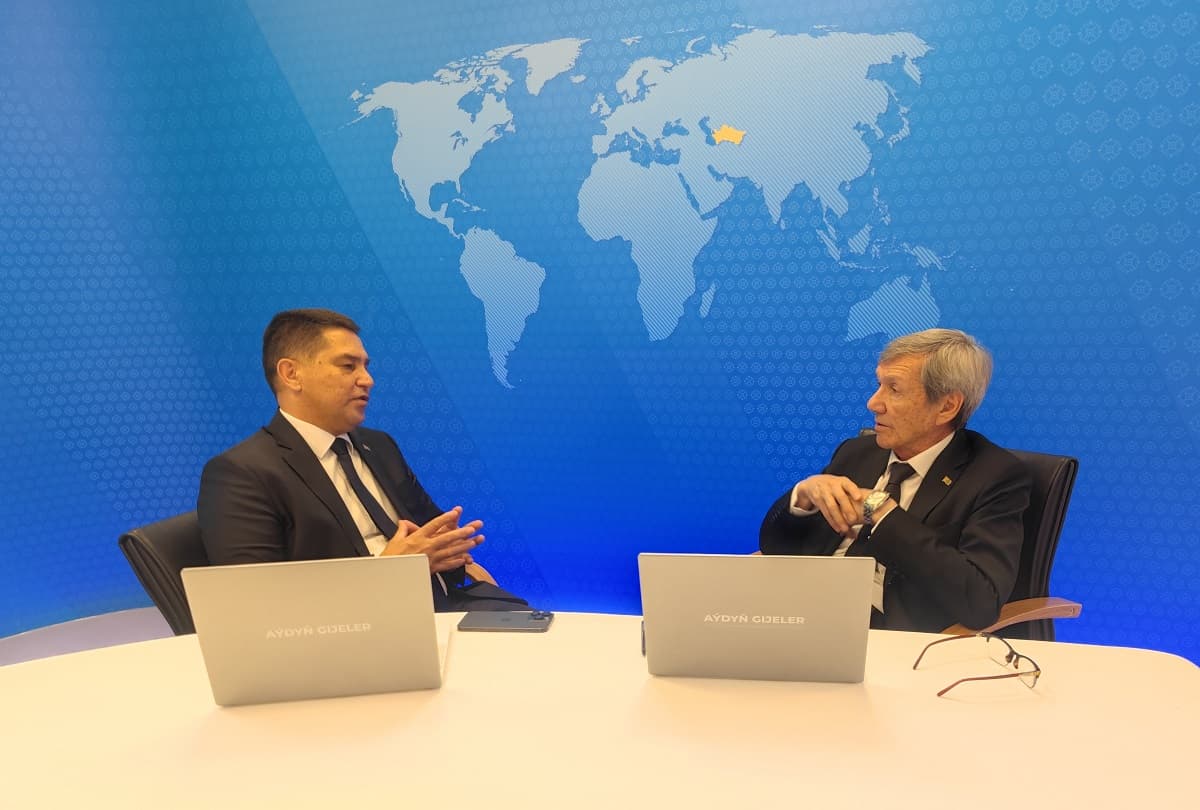
The recent tour of Chairman of the Khalk Maslakhaty of Turkmenistan Gurbanguly Berdimuhamedov to three Central Asian countries should be viewed as a reflection of a new phase of regional diplomacy aimed at deepening integration processes.
Amid global challenges and the accelerating transformation of Eurasia, the states of the region are increasingly aware of the need for a coordinated approach to ensuring sustainable development, security and infrastructure connectivity. The National Leader's talks held in Kazakhstan, Kyrgyzstan and Uzbekistan confirmed a common interest in forming a single economic and political space for Central Asia.
The proposed expert dialogue analyzes the key results of the visit, its symbolic and practical significance for the entire Central Asian region.
The participants of the dialogue, organized by the ORIENT website, were director of the Center for Strategic Studies of the Institute of International Relations of the Ministry of Foreign Affairs of Turkmenistan Shiri SHIRIEV and senior research fellow of this institution, candidate of philological sciences Bekdurdy AMANSARYEV.
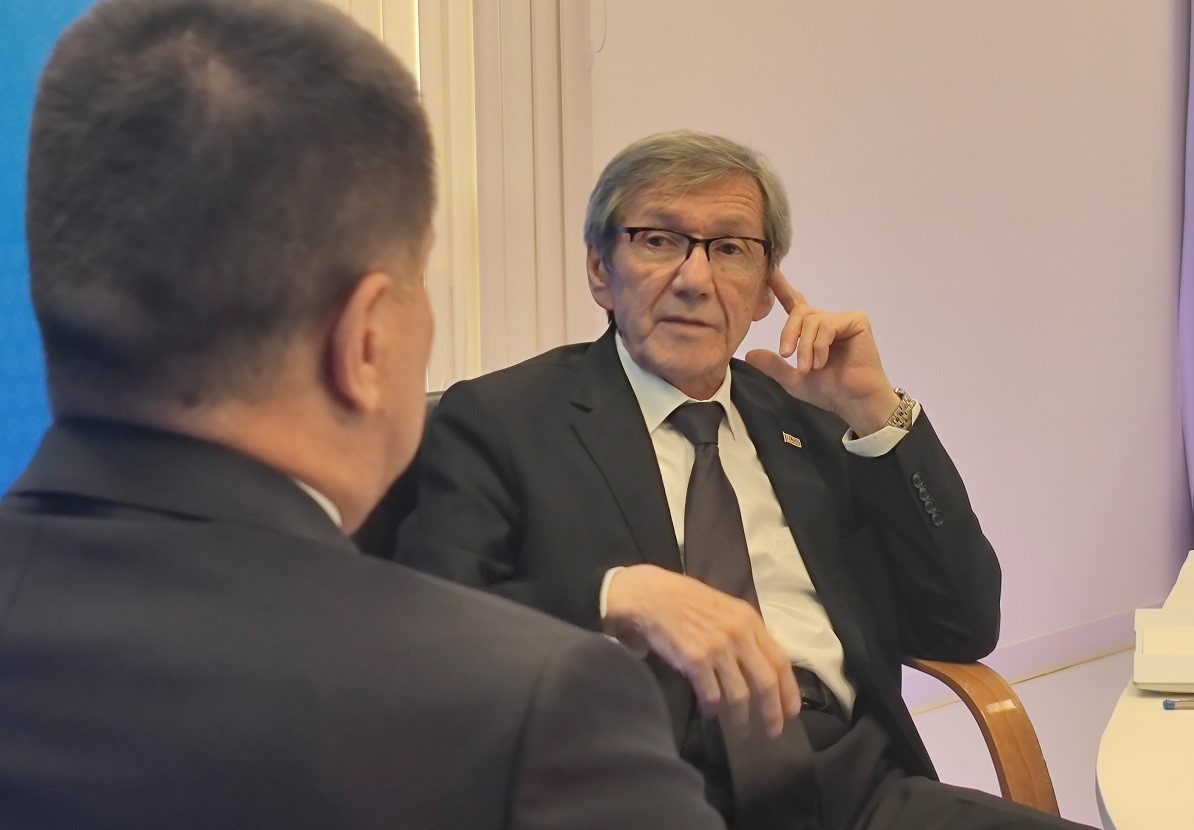
— Shiri Akoyliyevich, the visit of the Chairman of the Khalk Maslakhaty to Kazakhstan, Kyrgyzstan and Uzbekistan to strengthen multilateral ties between the countries of Central Asia has become an important milestone in regional integration. This tour was covered in sufficient detail by both domestic and foreign mass media. Therefore, I propose not to focus on the chronology and the fact of the events themselves, but to focus on the political and strategic results, as well as the success of the "rapprochement diplomacy" demonstrated by the National Leader of the Turkmen people during a busy trip to Central Asia.
— Bekdurdy Dzhumamuradovich, this approach would be correct. The program of visits was indeed very busy. And at the same time - very logical. Over the course of four days, the Chairman of the Khalk Maslakhaty visited three countries and held a number of productive negotiations and meetings there: Kazakhstan was the first, then Kyrgyzstan followed, and Uzbekistan was the final point of the route. The visits were clearly structured in a geographical and political sense. This once again emphasizes that Turkmenistan approaches issues of interaction in the region in a comprehensive, strategic manner.
— I agree. We see that Ashgabat is actively developing bilateral relations at all levels today – from humanitarian to strategic. At the same time, Turkmenistan is perceived as a respected, reliable and predictable partner in Kazakhstan, Kyrgyzstan and Uzbekistan. This is confirmed by the level of reception that was given to the Turkmen leader Gurbanguly Berdimuhamedov.
— It is important to note that the meetings took place at both the official and informal levels. This indicates a high level of trust between the parties, as well as the human component of relations between the leaders of the countries. And in Central Asia, this always plays a big role.
— It seems to me that one of the key topics during the visit was the transport and logistics interconnectivity of the region. Turkmenistan, due to its geographical location and infrastructure capabilities, can play a key role in the formation of transit routes between the East and West, North and South. And this idea was clearly voiced during the negotiations during the visit.
— Yes. And the discussion was not only about land corridors, but also about multimodal solutions. For example, with access to the Caspian Sea, Iran and further - to the countries of the Persian Gulf, India, China. Turkmenistan systematically invests in the development of its logistics hubs. Take, for example, the same Turkmenbashi port, railway lines, etc. Now it is important to synchronize this with the projects of neighbors in the region.
— Exactly. In this context, the emphasis on the alignment of national development strategies also looks significant. It was said that common logistics need to be built. For example, through the alignment of Kazakhstan's Nurly Zhol program, Uzbekistan's initiatives to develop the transport hub in Andijan, and Turkmenistan's efforts to strengthen ties with South Asia.
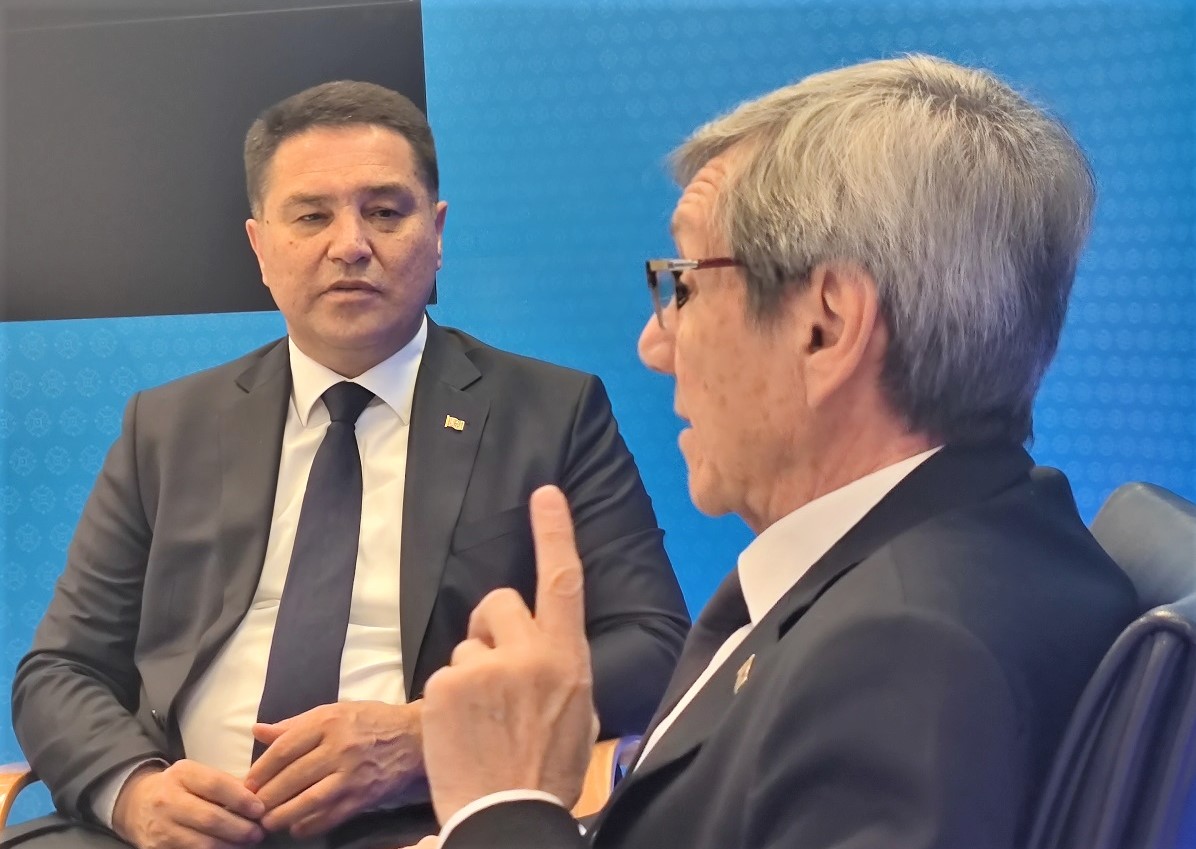
— And here again, the personal factor is important. The participation of the respected Gurbanguly Berdimuhamedov as the National Leader gives these processes additional legitimacy and political weight. He is quite rightly perceived as a person who stands at the origins of modern Turkmen foreign policy, and his word means a lot to partners.
— Now I propose to continue the conversation, focusing on the humanitarian agenda and the cultural and spiritual dimension of the visit. In my opinion, the humanitarian block was no less significant during the Central Asian tour.
— Of course! Episodes related to cultural heritage looked especially symbolic. For example, the visit to the Mausoleum of Khoja Ahmed Yasawi in Turkestan became a bright gesture of respect for the common historical and spiritual space of the Turkic peoples.
— I agree. These elements are not accidental – they strengthen the region’s “soft power”. Turkmenistan traditionally emphasizes the importance of spiritual and moral values, and this approach finds a lively response within the Turkic world. As noted, it is through culture and education that long-term trust is built.
— By the way, both Kyrgyzstan and Uzbekistan touched upon the topics of youth exchanges, scientific cooperation, and support for the Turkic cultural heritage. I think this reflects the understanding that sustainable development is impossible without investment in human capital and identity. And Turkmenistan is not an observer here, but an active participant. The mentioned initiatives on student exchanges, joint cultural events, and book publishing are all real steps. It is important that these projects are carried out in parallel with economic and political coordination.
— By the way, during the award ceremony of the highest state award of the Republic of Uzbekistan, Chairman of the Khalk Maslakhaty Gurbanguly Berdimuhamedov made a speech that embodies the most important aspects of strengthening diplomatic and cultural ties between the two countries.
— Yes, indeed, from the very beginning of his speech, the National Leader emphasized the historical significance of the award and the relationship between the peoples of Turkmenistan and Uzbekistan. Recognition of the highest award, the Order of Friendship at the Highest Level, as a symbol of the strong connection between the two states serves as the basis for further deepening bilateral relations. And the key point of the speech was an appeal to the cultural heritage of the two peoples, which has developed over the centuries.
— In his speech, the Turkmen leader made references to such great thinkers of the two nations as Magtymguly Fragi and Alisher Navoi, who recall the values that serve as the basis for harmony and brotherhood in Central Asia. He emphasizes the historical and cultural community that underlies friendly relations, and also emphasizes the importance of mutual respect and loyalty in relations between peoples.
— I would like to draw attention to the symbolism used by the National Leader. The mention of the construction of roads and bridges as noble deeds becomes a metaphor for strengthening ties between states. The construction of infrastructure facilities in this context serves not only as a practical, but also a symbolic gesture demonstrating the desire to strengthen mutual cooperation and trust. This aspect of the speech resonates in the current geopolitical situation, where infrastructure projects are becoming key elements of regional integration.
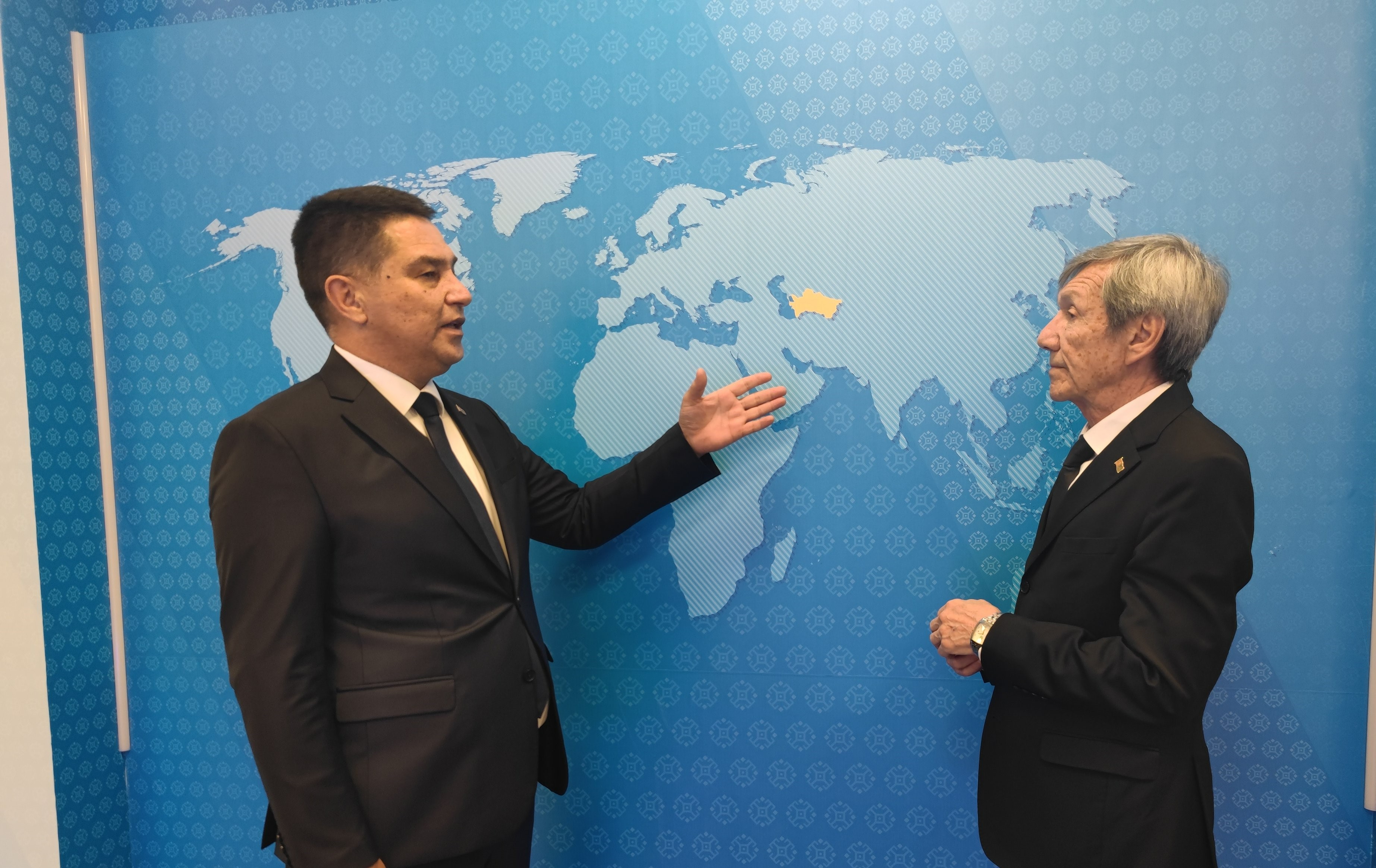
— The speech of the Turkmen leader also reflects the philosophy on which the policy of President of Uzbekistan Shavkat Mirziyoyev is based. Our leader expressed gratitude not only for the award, but also for the personal efforts of the President of Uzbekistan in developing relations between the two countries. The attention paid to the "philosophy of Shavkat Miromonovich", in which the key element is doing good deeds and serving the well-being of people, confirms the importance of personal diplomacy and leadership in maintaining stable relations between states.
— The mention of the visit of the head of Uzbekistan to Turkmenistan, the opening of the monument to Islam Karimov and the construction of the most important infrastructure facilities also serves as confirmation of how active diplomacy can directly affect the improvement of relations at the people's level. Visits during which trees are planted as a symbol of friendship become a kind of ritual that strengthens long-term ties and creates a sustainable foundation for cooperation.
Gurbanguly Berdimuhamedov expresses his readiness to continue working to strengthen friendship between the peoples of Turkmenistan and Uzbekistan. This underlines not only the strategic importance of bilateral relations, but also that such ties, both diplomatic and personal, are the basis for successful long-term policy in the region.
— At the same time, it is impossible not to note the economic component of the visit. In all three countries – Kazakhstan, Kyrgyzstan and Uzbekistan – specific areas for expanding trade and economic cooperation were discussed. This includes both trade turnover and joint investment projects.
— Moreover, Turkmenistan has clearly outlined the priority of increasing mutual supplies, developing the infrastructure of border trade and logistics. The idea of connecting transport corridors is especially interesting. Turkmen transit potential is in demand, and partners understand this.
In energy, the emphasis is on environmental friendliness and reliability. Turkmenistan consistently promotes the idea of sustainable supplies of energy resources, including gas, electricity, as well as the development of renewable energy sources. Here, the region has a chance to create a model of energy interconnectedness.
— And all this against the backdrop of growing interest in green technologies. Turkmenistan focuses on international cooperation in the field of hydrogen energy, energy conservation, and low-carbon development. These initiatives, voiced in Turkestan, Cholpon-Ata, and Samarkand, are integrated into the sustainable growth agenda for the entire region.
— Thus, to sum it up, we can say that the visit of Chairman of the Khalk Maslakhaty Gurbanguly Berdimuhamedov to Kazakhstan, Kyrgyzstan, and Uzbekistan has become an important stage in further deepening good-neighborliness, strengthening strategic ties, and coordinating regional priorities.
— Certainly. This visit confirmed that Central Asia has a high potential for internal consolidation. Turkmenistan makes a significant contribution to this process – through open dialogue, respect for national characteristics and focus on the common good.
— A kind of new regional identity is being formed – based on pragmatism, solidarity and the desire for sustainable development. And Turkmenistan’s diplomacy, based on neutrality and trust, plays a key role in this. The main thing is not just words, but specific initiatives, mechanisms and joint actions. This means that we can confidently talk about the progressive movement towards a more united, sustainable and economically strong Central Asia.
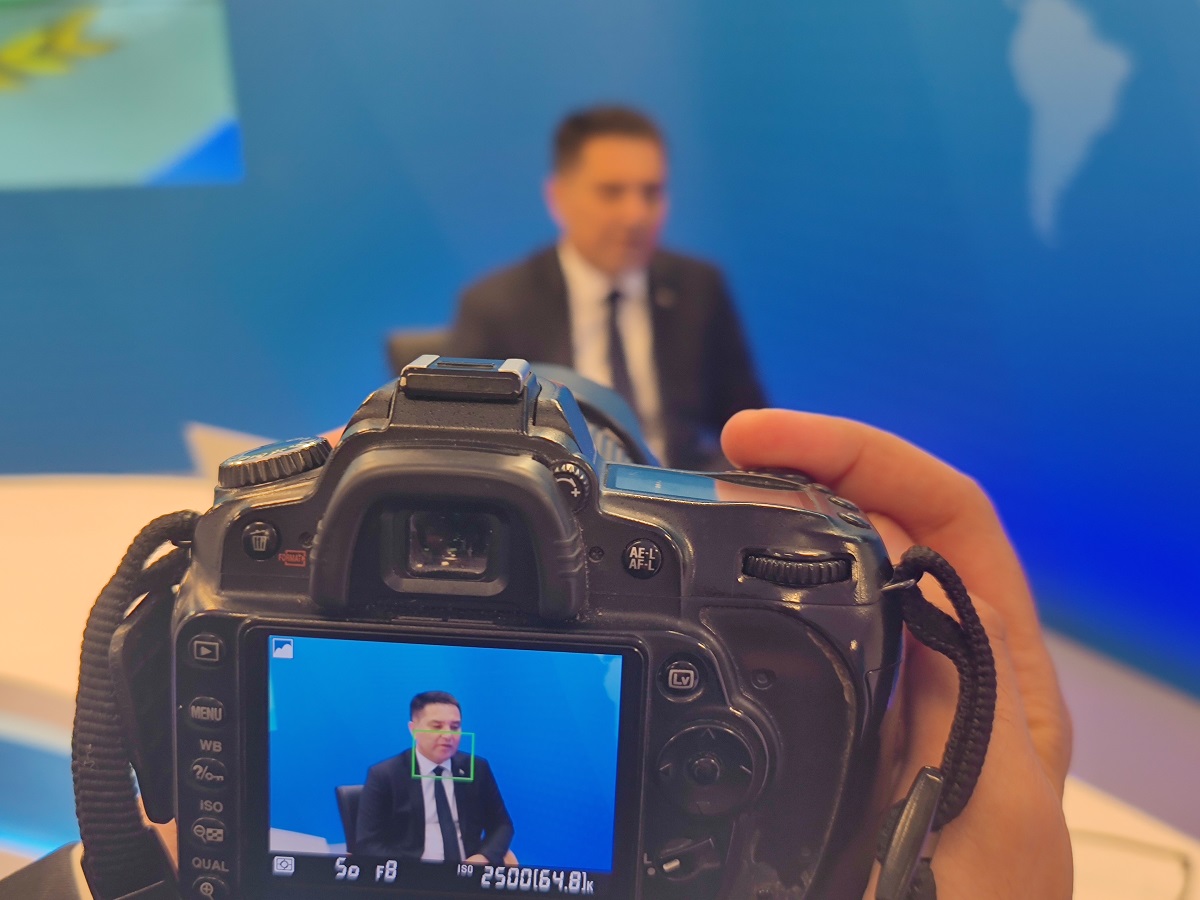
— In recent years, Central Asia has been experiencing a period of increased political and economic integration, and Gurbanguly Berdimuhamedov's visit to Kazakhstan, Kyrgyzstan and Uzbekistan is a logical continuation of this process.
— In the context of a dynamically changing international order, the countries of the region are striving to strengthen mutual ties in the areas of trade, energy, security and culture. These visits have become not only an act of diplomatic activity, but also a demonstration of the readiness of the Central Asian states to work on solving global challenges through joint efforts.
Three countries - one region, a common agenda and common challenges. The Central Asian tour of the Leader of the Nation across the states of the region has become a vivid illustration of the growing role of Turkmenistan in shaping the new integration landscape of Central Asia.
— So, Shiri Akoylievich, we have considered a number of issues – from sustainable development to cultural rapprochement. The topics discussed clearly showed that the region is entering a stage of closer coordination, where cooperation, not competition, is becoming a priority.
— Absolutely right, Bekdurdy Dzhumamuradovich. And this fact confirms the common interest in the formation of a single economic and political space of Central Asia.
ORIENT
